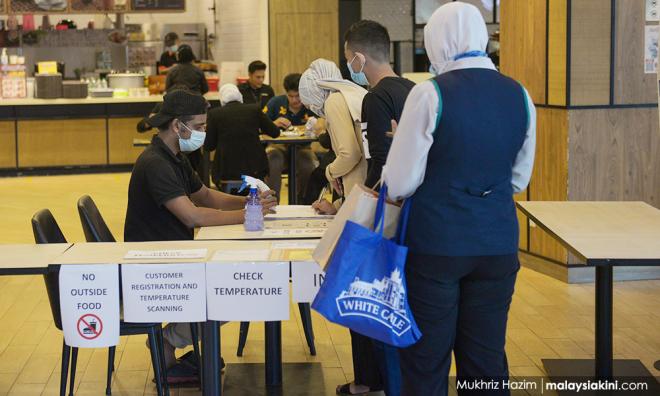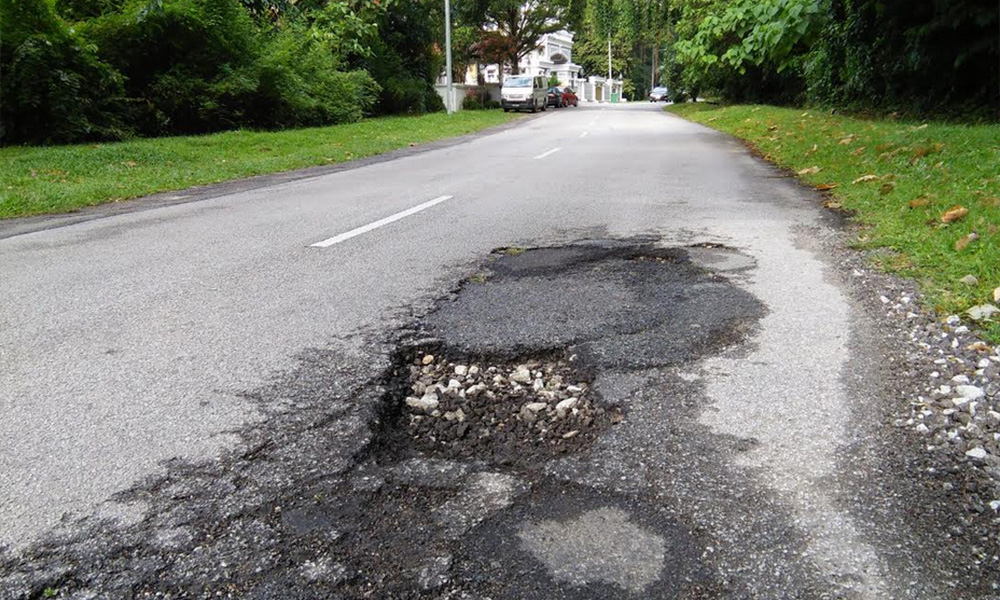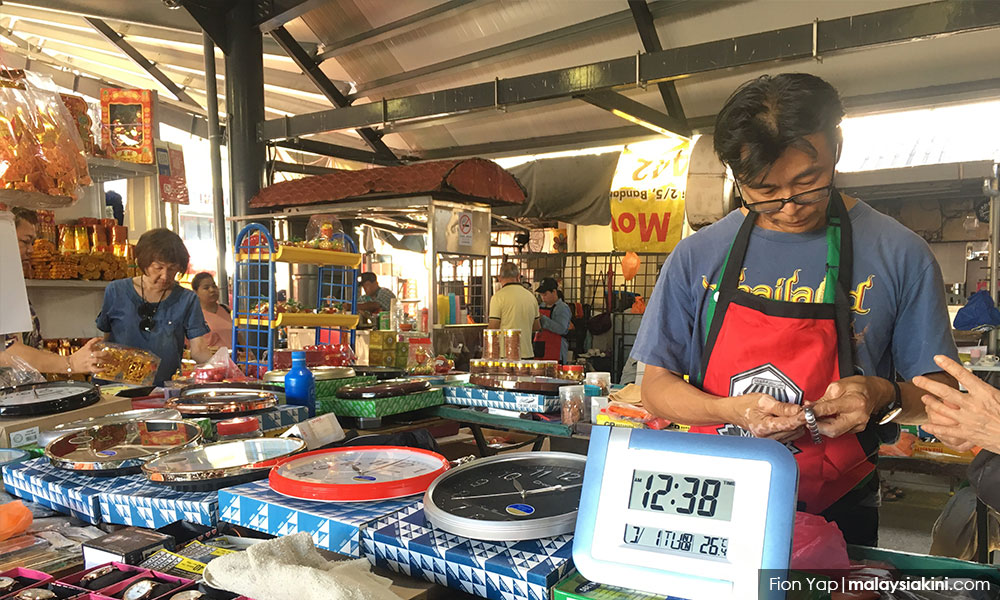
The latest soap opera twists in Malaysian politics can be entertaining, what with yet another leaked audio recording, rumours of a counter-coup against the backdoor government, and the betrayals at Bersatu (united), which is now behaving more like Berpecah (broken).
But, gripping as the political circus may be, let’s force ourselves to turn to a serious problem - how can our economy and society recover from Covid-19?
I would like to suggest learning from how the United States launched a huge, bold New Deal recovery programme to create lots of new jobs to tackle the Great Depression of the 1930s. This was done by a leader many believe to be the USA’s greatest President, Franklin Roosevelt.
Malaysia’s official unemployment rate for March stands at 3.9 percent or 600,000 people (not including the prolonged MCO of April) according to the government’s own Department of Statistics, which said that number may rise to 5.5 percent (860,000 people). The Malaysian Employers Federation (MEF) even claims that up to two million people could become jobless.
Some believe the government is to blame for a stingy subsidy of only 15 to 30 percent of salaries (depending on the size of the company, for three months) to encourage employers to retain workers - in contrast, the Singapore government is subsidising 75 percent of salaries. But don’t worry, the Perikatan Nasional (PN) government is providing jobs where it “counts” - to their MPs to head various GLCs.
Sarcasm aside, let’s examine how President Roosevelt’s New Deal provided 8.5 million jobs to Americans during the Great Depression to build 1,046,000km of roads, 125,000 public buildings, 75,000 bridges, 8,000 parks and 800 airports.
Now, I am not suggesting that we copy and paste that solution. For one, Malaysia probably doesn’t need yet another international airport at Kulim, Kedah, when there are already two airports nearby, in Penang and Langkawi. And we certainly don’t need more commercial buildings amid the property glut and Covid-19 slump. We also already have several ongoing big-ticket projects - LRT3, MRT2, Pan Borneo Highway, etc - to provide work.
But if two million people are set to become unemployed, it could be argued that more jobs should be created to build many more affordable homes as well as other rural roads/bridges in Sabah, and especially Sarawak (wouldn’t this be a good “reward” for GPS “loyalty” to PN?).
What else can be done? If we think creatively, many opportunities appear. For example, what if local councils employ jobless folks to repair all road potholes?
Remember that old uncle named Panjang, now aged 79, who first hit the news in 2006 for going around Johor Bahru repairing potholes on his own time and expense? He was armed with nothing more than a bicycle, a bucket of cement and a good heart.

Potholes are a nuisance to car drivers but can be fatal to motorcyclists, most of whom are from the racial group that PN claims to “defend”. Of course, it’s the job of “the authorities” to deal with this, but there seems to be some nice taichi (pushing) of responsibility about who should actually do it. Is it the local council? JKR/Public Works Department? Whatever agency or contractor which dug up the road last week?
It was only in 2016 (10 years after Panjang began his work) that JKR Johor declared a “zero pothole campaign” to deal with this nagging problem, and even then only main roads were repaired, leaving the noble old man to keep up his good work on smaller residential roads.
Now, what if 1,000 Panjangs were hired around the country to repair not only potholes, but also to remove dangerous lumps of concrete on roads, to clear branches blocking road signs, to make concrete replacements for metal drain grille covers that have been stolen, etc? This is just a small example to show that there are many needs in society where the government can create useful work for the unemployed.
For those who worry about whether Malaysia can afford it, well, this crisis is the best time for the government to provide stimulus spending. The amounts involved need not run into the millions or billions (unless there are cronies inflating contracts) and we are not creating extra civil servants, just short-term contract workers - until the economy fully recovers.
Better to provide paying jobs to people in need...
It’s better to provide paying jobs to people in need, rather than just cash handouts, as this encourages people to have self-respect and a sense of purpose in doing something useful. For the more technical jobs, workers get to preserve or even upgrade their skills, rather than have them wither away.
Unlike giving millions/billions to cronies who then stash or hide their money overseas by buying properties in London or Picasso paintings in America, all the wages paid to needy workers will lead to immediate, local consumer spending to stimulate and revive our economy.
The pothole repairing example can be scaled up to provide jobs that fulfil other social needs (some of which have been done for free by charity groups up till now). For example:
- Repairing run down rural schools, especially in East Malaysia;
- Helping out at old folks or children's homes;
- Feeding the homeless in our cities; and
- Setting up micro-hydroelectric, solar power projects or gravity water supplies (without pumps) to provide electricity and water to villages deep in the interior of, you guessed it, East Malaysia. (Hopefully, without “Aunty Rose” in the picture, the solar projects will finally work.)
To prevent abuse, all projects should be proposed by the communities themselves, and the spending, number of employees, work done, etc, should be put up online so that the public can monitor how the money is used. For the potholes, every town or district can set up a Facebook page, where residents can send in photos of places that need help from our new Road Repair Warriors.

I believe creative thinking can help us find new ways to solve the Covid-19 crisis. For one, I could not understand why roadside hawkers were banned from offering takeaways during the MCO, while shops were allowed to do so. Why the bias towards a concrete building? After all, I recall that when packing food at some popular shops, the queues were not always socially distanced.
Hawkers needed the income more urgently, and ample space could have been provided on the many empty roads for them to operate. Only Malacca state took an innovative solution, allowing roadside hawkers to operate in housing areas, away from more crowded town streets.
Now that we face a wave of joblessness, how about providing more spaces for temporary hawkers in our towns and cities? After all, while our politics stink, our street food remains the most fragrant thing about this country.
All that is needed are basic water supply and garbage disposal, if need be, the hawkers can even provide their own tables and umbrellas. Once our economy recovers, we can reconsider if they should keep operating - by that time, we may have unearthed great new char koay teow, ayam percik or rawa thosai as new tourist attractions!
I will add more suggestions in another column piece. But for now, please, let’s think out of the box to get ourselves out from this Covid-19 downturn. Here, I'd like to call on the public to propose other creative solutions.
As for the politicians, enough of thumping your chests about how many people you've arrested during the MCO.
It's time they spared a few moments from their weekly soap opera to consider new ways to save our economy.
ANDREW SIA is a veteran journalist who likes teh tarik khau kurang manis. You are welcome to give him ideas to brew at tehtarik@gmail.com. - Mkini


No comments:
Post a Comment
Note: Only a member of this blog may post a comment.